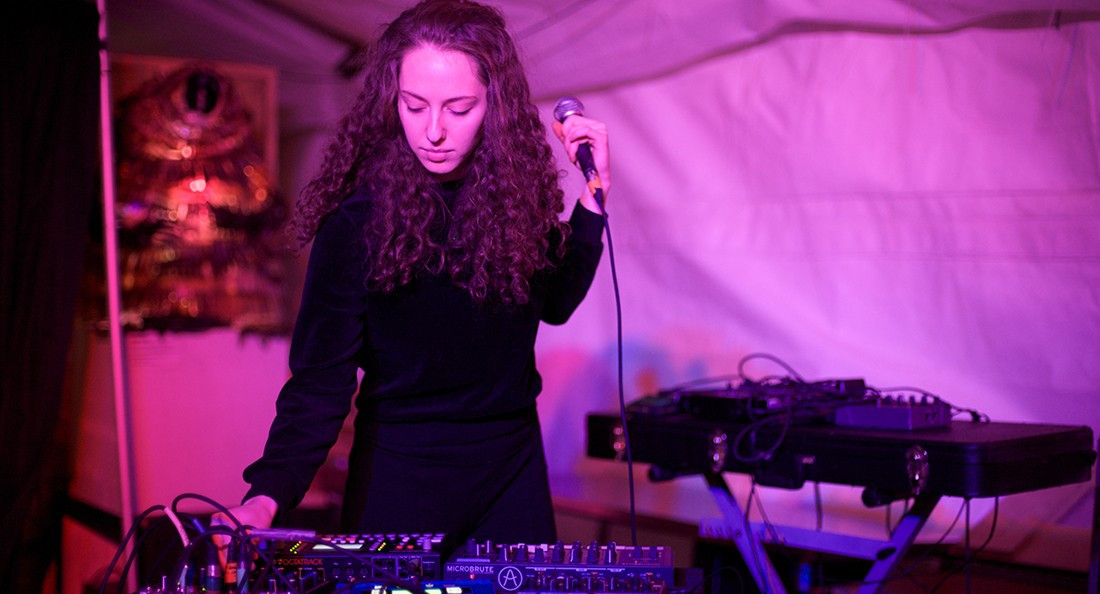Looking back at Cootie Club
And dreaming up a future for everyone
From September 2014 to June 2015, Cootie Club offered an alternative gathering space in Winnipeg’s music scene.
“Our goal ... was to provide a monthly showcase platform for artists and musicians who were women, non-binary, queer or People of Colour (POC),” past Cootie Club organizer Kara Passey says.
“Lots of great music and art comes out of Winnipeg, and while a few venues in the city try to be inclusive and safe, most of them are not,” Sheli Gelman, of the former band Falaxies, says. “You won’t often find (POC), transgender folks, disabled people or queers like me playing shows there.”
Passey says that as Cootie Club went on, it became clear that concerns around safety, and sexual violence in particular, were main barriers to people’s participation in Winnipeg’s music scene. Out of this came the Pink Bandanas.
“The ‘Pink Bandanas’ were also a product of Cootie Club, and they existed as monitors of the events, there to provide support and address unsafe behaviours if needed,” Passey says of their process implementing a safer spaces model that extended beyond a list of house rules.
Cootie Club “felt like a super rad safe space to me at the time,” Kandice Knapp, of the former band Uncanny Valley Girls, says.
Though Cootie Club is no more, other events and organizing groups have continued to make space in Winnipeg’s music scene.
“The annual Different Strokes for Different Folks showcase (as part of Genderfest) has been a really positive place for me to perform in a variety of venues that have been (LGBTTQ) inclusive,” Hailey Primrose, a singer-songwriter, says.
She adds that QPOC’s Drop the Mic creates a performance space where people can perform with “little fear of judgment, no matter the skill level or how much performing experience they might have.”
Taylor Kell, founder of Different Strokes for Different Folks, says the goal of the event is to offer a performance platform to queer and gender-variant folks who might not get as many opportunities to perform.
“Every year since (the first year) the number of people performing and displaying art has increased, and so has the size of the audience … This year we had approximately 30 people interested in performing!” Kell says.
Better inclusion in the music scene benefits everyone, Joanne Pollock, a musician and producer, says. She hosts a workshop series called Equalizer, which is dedicated to teaching women and non-binary folks skills related to audio production and recording.
“My dream (for Winnipeg’s music scene) is that it will finally just be the norm for events to be accessible and inclusive,” Kell says. “(R)ight now, there are shockingly few venues that are actually accessible.”
“I would love to see more opportunities for performers who aren’t a part of Winnipeg’s ‘in’ scene. Outsiders bring in the most amazing, raw talent, and I firmly believe that women, non-binary, queer and POC have a lot more to share with Winnipeg’s music scene,” Passey says.
Passey says they’d also like to see more men who claim to be against sexual violence stand behind their words.
“As a survivor of sexual violence and relationship abuse, I know firsthand how it feels to be asked to play a show and wonder if you need to prepare yourself to see your abuser in the crowd,” they add. “I’d like to see more dudes in music centre these groups when considering how to make their shows/venues fun places to be.”
The fourth annual Different Strokes for Different Folks will be on Feb. 24 at the West End Cultural Centre (586 Ellice Ave.). Doors open at 6 p.m., and the show starts at 7 p.m. Admission is a suggested $5 donation/pay what you can, but no one will be turned away
for lack of funds.
Published in Volume 72, Number 18 of The Uniter (February 15, 2018)







